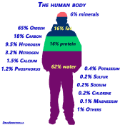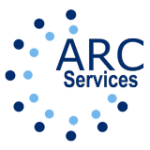What are the advantages of using our services?
Our referral and consultation counsellors bring a wealth of experience, having dedicated years to assisting individuals and families in their journey towards recovery. Through their extensive involvement in the field, they’ve acquired invaluable insights into the intricacies of various addiction treatment programs. This understanding enables them to discern which program aligns most closely with your unique requirements and circumstances. With their guidance, you can make an informed decision that increases the likelihood of a successful and lasting recovery.
This means less time you spend on research and fewer guessing games. Our referral service is free.
Does the length of a program guarantee success?
There are no guarantees, but as a general rule, the more time spent on a program, the greater its chances of success. A program must address the issues relevant to the individual’s problem to succeed.
The quality of treatment is also important. It’s not only a question of time. Finally, the individual doing the program has a great deal to do with his own success.

After a
Treatment
Recognizing Substance Use

What is Our Cost?
Our referral service is free. We will help you find the right treatment program as best we can. Keep in mind that we mainly refer to private centres across the country. However, an out-of-pocket expense is incurred with the private facility.
Being aware of the waiting lists in the funded sector, we found affordable treatment centres that the average family can afford. We can also refer families to more expensive programs if they want them.
We have a few paid services. These are our Online Coaching sessions, and we also provide assessments.

Safeguarding
Sobriety
Series on Intervention

Is Online Addiction Recovery Coaching a Solution?
With Addiction Recovery Coaching, the person is tutored or guided with simple information to understand the barriers and obstacles to recovery. It is not a service for everyone. It is for people that have a mild addiction problem but haven’t quite lost total control over their dependency.
Successes for inpatient vs. outpatient centers?
Outpatient centers allow the patient to live at home while in treatment. Inpatient treatment is residential, meaning that the individual is in a controlled environment. The disadvantage of outpatient treatment is that the person is in the same environment where they consume and can be swayed more easily into drugs; also, the stimulus or triggers are right in front of them.
The first mentioned type of program asks that the individual be strong from the get-go, which is a “tour de force” for most individuals. In an inpatient drug treatment program, the individual has the added security that the outside stimulus will be kept at a minimum because of the controlled environment.

Five Key Reasons
for Relapse
Series on
Treatment

What is the most successful treatment type?
A long-term residential drug treatment program is your best bet. Most people cannot recover from addiction in a matter of a few weeks. The person needs enough time to address the reason or reasons why they found solace in drugs. A program teaching skills to deal with certain issues in life is also highly recommended.
It is not a matter of just stopping drugs or getting over the burden of withdrawal.
What defines addiction?
There are many schools of thought on this. We believe that there is a dependency if a person feels the need to get high in certain situations and cannot act without it. The person may feel this need once a week, once a month or every day; either way, there is still a dependency. Although there might not be any withdrawal symptoms, if the person needs it, there is an addiction.
Is pot addictive?
In the 1970s, pot used to have a THC concentration of 3 to 5 % (THC is the active ingredient that makes you high). Nowadays, the THC level in pot is well above 20% and with hydroponic cultures, it can reach up to 40%. It is also often laced with other chemical compounds, such as meth, PCP, MDMA, fentanyl, etc.
This explains why more and more people are experiencing mental withdrawal symptoms like anxiety and other cognitive phenomena. You see more people now needing rehab to get off this drug. It isn’t a soft drug anymore.
And even though it is no longer considered a gateway drug, research points to the fact that it can be a gateway drug depending on life situations.
Can prescription medicine create addiction?
Yes. Depending on the medication, painkillers (opiates) are the number one culprit. Some of these medications have found their way into the streets and are sold on the black market. Hydro-morphine (Dilaudid), Oxycontin, Fentanyl, Percocet, and Percodan are just a few.
The most common these days is Fentanyl, an opioid like morphine, codeine, heroin and methadone. In Canada and other countries, OxyContin was a problem several years back. The new “arrival” is Fentanyl, which is 50 to 100 times more potent than morphine. Physicians prescribe these to manage pain after surgery and treat chronic pain.
Ritalin is another prescription drug that can be found on the black market. Part of the family of amphetamines, the drug stimulates and speeds up the nervous system, unlike Opiates, which calm down.
Other drugs similar to Ritalin for their effect are cocaine, methamphetamine, amphetamines and ecstasy, to name a few.

Articles
- After a Treatment Program
- Challenges of Rehab (Treatment Series)
- Discharge Plan and Aftercare
- Drug Addiction in Canada- A Growing Problem
- Five Key Reasons for Relapse
- Most Used Cutting Agents
- Oral Health and Addiction
- Price Tag of Sobriety
- Recognizing Substance Abuse
- Referral & Consultation, Defined
- Safeguarding Sobriety
- Series on Addiction
- Series on Intervention
- Sobering Someone Up
- Substance Abuse Assessment
- The Truth About Drugs
- After a Treatment Program
- Challenges of Rehab (Treatment Series)
- Discharge Plan and Aftercare
- Drug Addiction in Canada- A Growing Problem
- Five Key Reasons for Relapse
- Most Used Cutting Agents
- Oral Health and Addiction
- Price Tag of Sobriety
- Recognizing Substance Abuse
- Referral & Consultation, Defined
- Safeguarding Sobriety
- Series on Addiction
- Series on Intervention
- Sobering Someone Up
- Substance Abuse Assessment
- The Truth About Drugs
Find out more about us.

Marc J. Bernard
Author,
Substance Use Disorder & Recovery Professional,
Referral & Consultation Counsellor






